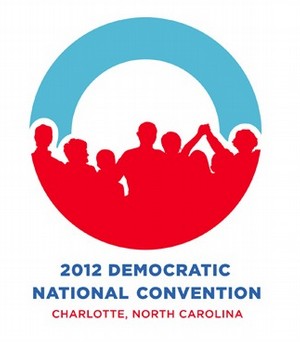Conventions cost federal taxpayers as much as $136 million
By M.D. Kittle
From Wisconsin Reporter
Federal taxpayers could be on the hook for more than $136 million to cover the cost of the major political parties’ presidential nominating conventions.
That’s the estimated total taxpayer tab of this week’s Republican Party National Convention in Florida, and next week’s Democratic Party National Convention in North Carolina.
And campaign finance trackers say the millions more flowing into cocktail soirees, celebrity mixers and cigar tent sideshows paid for by unions, corporations and other special interests could eventually come with a higher price tag for taxpayers.
While some voters willingly kick in for the balloons, booze and bunting, plenty of taxpayers are unaware they are contributing to the parties’ parties.
Taxpayers don’t know
 “The general public does not know that taxpayer dollars are used to underwrite these conventions. I think it’s wrong,” said Jay Heck, executive director of Common Cause Wisconsin, part of the national nonpartisan public-interest organization. The group traditionally supports left-leaning issues.
“The general public does not know that taxpayer dollars are used to underwrite these conventions. I think it’s wrong,” said Jay Heck, executive director of Common Cause Wisconsin, part of the national nonpartisan public-interest organization. The group traditionally supports left-leaning issues.
Congress appropriated $100 million — $50 million for each convention — to cover the cost of security, which, so far in Tampa, appears to be much tighter than the 2008 GOP convention in Minneapolis-St. Paul.
The two major parties will each receive public grants of $18,248,300 for their conventions, funded through the Presidential Election Campaign Checkoff.
The Presidential Election Campaign Fund, in effect since the 1976 general elections, allows taxpayers to designate on their federal income tax returns $3 to finance presidential campaigns.
Candidates agree to spending limits in exchange for tens of millions of dollars in federal matching funds to finance their campaigns. Dollars are matched.
Obama, Romney forego public financing
Barack Obama became the first presidential candidate to just say no to public financing in 2008, and GOP nominee Mitt Romney is doing the same this year for one simple reason: The approximately $110 million combined in publicly funded contributions (cost of living adjustment included) is a pittance compared to the $1 billion-plus the combatants will spend in their campaigns for the White House.
Obama outspent GOP nominee and Arizona U.S. John McCain by about 5 to 1, something the Obama campaign has criticized Romney and supporters of doing this election.
Declining support from taxpayers
Much has changed since the 1970s, particularly public contributions to the presidential election fund.
Total public funding has ranged from about $73 million in 1976 to nearly $240 million in 2000, according to the Federal Elections Commission, which monitors the fund. The total for 2008 was more than $139 million, representing the largest decline in spending from one election cycle to the next.
Participation in the tax checkoff program has declined each year, from a high of 28.7% for 1980 returns to 6.6% for returns filed with the IRS in 2010.
Part of the decline has to do with the increasing complexity of income taxes. Fewer people prepare their returns, meaning fewer people personally fill out the checkoff list. But Heck and others acknowledge that the bipartisan nature of the public fund, divvying up the pot of taxpayer money to candidates and parties evenly, doesn’t appeal to an ever-partisan voter.
The fund is supposed to help offset the costs of campaigns for primary and general election candidates, as well as party conventions.
Priority funding for conventions
Tweaks to the law over the years require funding “priority be given first to party nominating conventions, then to general election nominees and last to primary election candidates,” the FEC notes.
Heck, perhaps not surprisingly, is among the dwindling percentage of taxpayers who still checkoff the $3 box.
He holds firm to the belief that publicly funded campaigns, deemed by conservatives as nothing more than welfare for politicians, will come back stronger than ever when the numbers are tallied on all of the special-interest checks cashed this election year.
“We’re always one scandal away from massive reform of our system,” Heck said. “All it takes is another Watergate, another legislative caucus scandal.” It was Watergate and presidential campaign slush funds, after all, that triggered the 1970s public finance laws.
Still, Heck says he’s not thrilled with his tax dollars going to pay for party conventions, but argues public financing is better than corporate, union and other special-interest cash covering the costs.
The problem, Heck and campaign finance watchdogs assert, is lobbying dollars already are paying for a big chunk of the convention pre- and after-parties.
Big spending from special interests
“Involvement of special interests is enormous,” said Sheila Krumholz, executive director of the Washington, D.C.-based Center for Responsive Politics, which runs the campaign finance and political influence tracking website Opensecrets.org.
“This is a prime opportunity for lobbyists, corporations and union leadership to have prime-time access to lawmakers and policy leaders,” Krumholz added.
And there’s a lot of alone time at these exclusive, invitation-only affairs.
Democratic and Republican parties are seeking donations of at least $105 million through host committees that don’t have to provide a full accounting of donors and contribution amounts until mid-October, according to a story last by Bloomberg.
Big donors, most of which were labor unions and corporations, chipped in $123 million in 2008, less than the $142 million they contributed to the parties in 2004, according to the FEC.
Heck sounds indignant.
“The purpose of (public financing) was not to underwrite these conventions, but to help candidates for the presidency to finance campaigns so candidates don’t have to do what Romney and Obama are doing almost every day – fundraising.”
Public funding for nominating conventions appears to be among the few issues the major parties can agree on.

MarylandReporter.com is a daily news website produced by journalists committed to making state government as open, transparent, accountable and responsive as possible – in deed, not just in promise. We believe the people who pay for this government are entitled to have their money spent in an efficient and effective way, and that they are entitled to keep as much of their hard-earned dollars as they possibly can.

